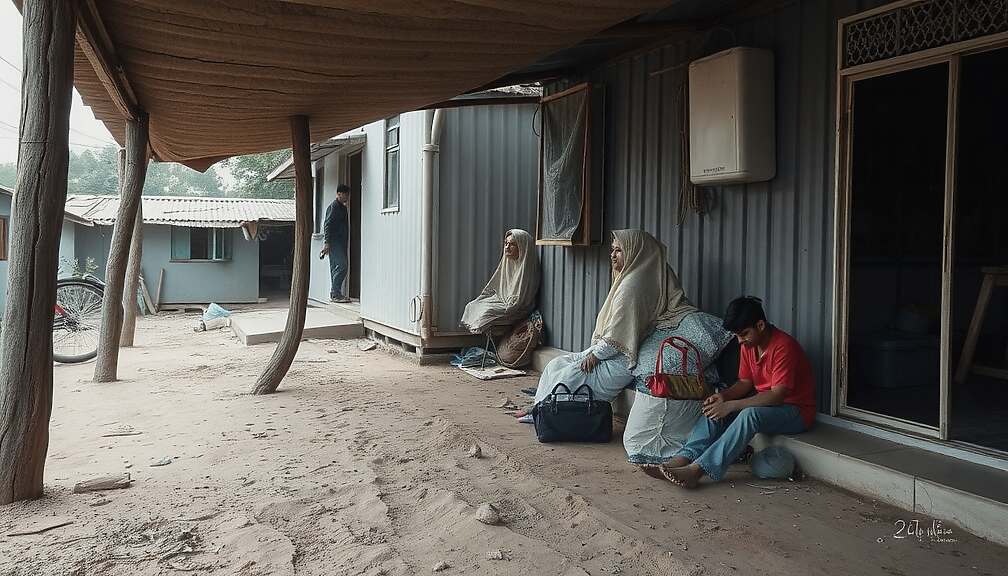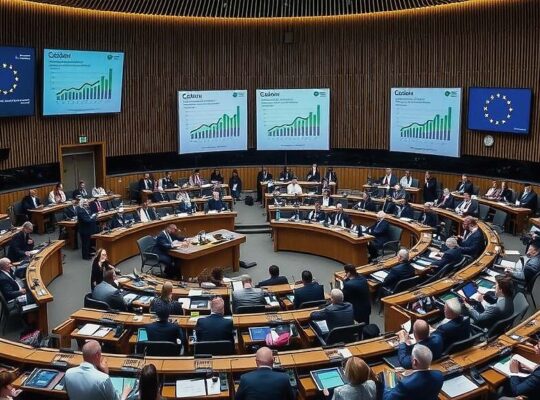The escalating climate crisis is triggering a global displacement emergency, forcing millions from their homes and placing unprecedented strain on international humanitarian efforts, according to a report released Monday by the United Nations High Commissioner for Refugees (UNHCR). Over the past decade, climate-induced disasters have generated an estimated 250 million internally displaced persons, equating to roughly 70,000 displacements daily – a figure that underscores the growing intersection of environmental degradation and humanitarian crises.
As of mid-2025, a staggering 117 million people are displaced due to conflict, violence and persecution. Critically, three out of every four of these displaced individuals reside in nations already vulnerable to extreme climate-related hazards. Recent events, including devastating floods in South Sudan and Brazil, record-breaking heatwaves in Kenya and Pakistan and acute water scarcity in Chad and Ethiopia, are pushing already fragile communities to the verge of collapse – frequently exacerbating existing political instability.
“Extreme weather events are jeopardizing people’s safety everywhere” stated UN High Commissioner for Refugees Filippo Grandi. “They disrupt access to essential services, destroy homes and livelihoods and compel families – many of whom have already fled violence – to seek refuge again”. This creates a cruel cycle for vulnerable populations, who have endured immense losses and are now confronting the same hardships and destruction repeatedly. They are disproportionately affected by severe droughts, lethal floods and unprecedented heatwaves, yet possess the fewest resources to recover.
The UNHCR report highlights the severe degradation of basic survival systems in affected regions. In areas of flood-ravaged Chad, newly arrived refugees from the war-torn Sudan are receiving less than 10 liters of water daily – a rate far below minimum emergency standards. Projections indicate that, by 2050, the most exposed refugee camps could experience nearly 200 days of dangerous heat stress annually, posing substantial health and survival risks and potentially rendering some locations uninhabitable due to the combination of extreme heat and humidity.
The unfolding crisis demands a fundamental reassessment of international response strategies. While humanitarian aid remains crucial, the UNHCR’s findings implicitly criticize the insufficient efforts to address the root causes of climate change and the lack of proactive measures to build resilience in vulnerable communities. The report suggests a need for increased investment in climate mitigation, adaptation and sustainable development, coupled with a more equitable distribution of resources to assist those bearing the brunt of an escalating environmental crisis, many of whom are already politically marginalized and facing imminent threats. Failure to act decisively risks creating a cascading series of displacement emergencies, further destabilizing already precarious regions and hindering global security.












